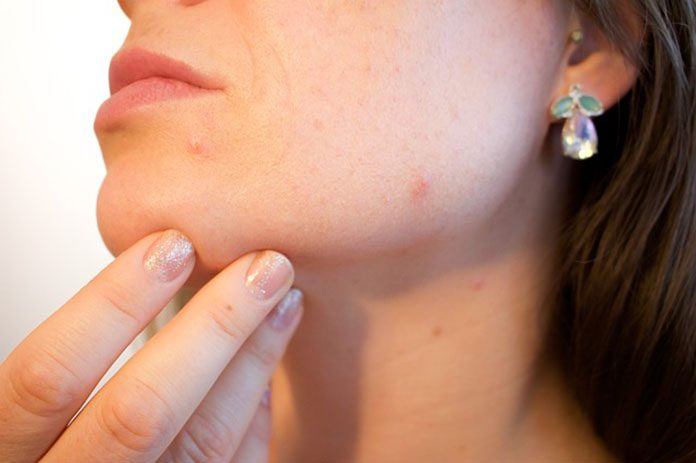Acne is a very common skin condition that affects most people at some stage in their life. Many teenagers get blemishes as they undergo hormonal changes in puberty. But according to a new study, people with acne tend to have younger-looking skin as they grow older.
Scientists compared genetic information about women with and without blemishes. They found that acne-prone women have longer telomeres than their clear-skinned counterparts. It means their cells are better protected from the deterioration that usually comes with age.
Lead researcher Simone Ribero said, “Our findings suggest the cause could be linked to the length of telomeres, which appears to be different in acne sufferers and means their cells may be protected against aging.”
Although telomeres are a DNA-protecting compound structure at the end of a chromosome. Consider them as those little plastic caps that sit on the ends of your shoelaces to keep them from fraying. Every time when the cell splits, its telomeres become shorter to the point where the cell can’t replicate anymore. A cell that can’t replicate further either dies or becomes senescent. This telomere-shortening process is linked to ageing, cancer, and a higher risk of death.
People who smoke and obesity can rapidly accelerate the telomere shortening process. That’s why smokers or those who has a heavyweight look older than they actually are. But what about people who look younger than they actually are?
The UK National Health Services explains, “for years, dermatologists have been noticing that people who have had acne show signs of ageing later than those who have never had the skin condition.”
To discover the reason, scientists measured the length of white blood cell telomeres in 1,205 twins of all females. They found that a quarter of twins had experienced blemishes in their lifetime.
They did the same in a separate study, where they age-matched 195 sets of twins without acne to 39 sets of twins with acne. As telomeres are measured in kilobases a number of six base-pair sequences of DNA are found in each one.
Scientists found that, on average of women who’d experienced acne before had noticeably longer telomere than women who’d never had acne. They then analyze gene expression in skin biopsies from the twins to discover if there are any specific gene pathways that are linked to lower or higher acne risk.
They stopped at finding a single gene pathway that was more commonly expressed in women without acne. But there are some limitations. Researchers were only able to establish a link between shorter telomere length, people with acne, and slower ageing. But, to show any biological cause to explain why people prone to blemishes might experience slower telomere shortening.
The ZNF420 pathway is less active in people with blemishes. Therefore, the process of cell death becomes slow. But this is still unapproved. The study also relied on self-reporting with regards to the severity of blemishes and only focussed on women. So we have to take those factors into account too.
